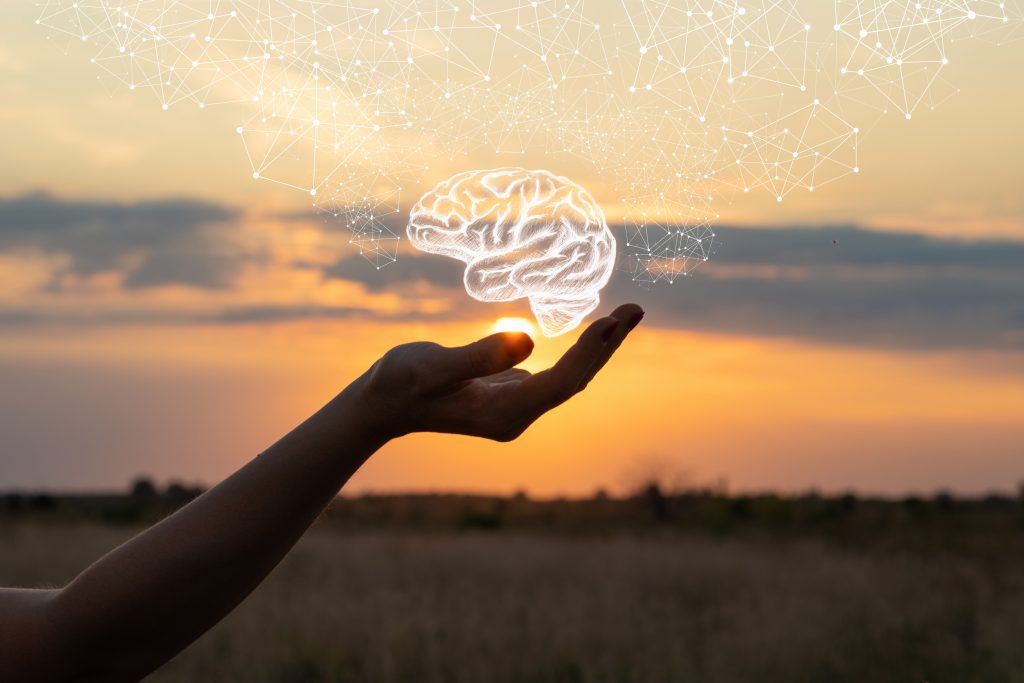People often disregard mental health because it is not something you can see. However, the Adult Psychiatric Morbidity Survey (2014) found that one in six people have experienced a common mental health problem within the last week. It might surprise you that there is a strong correlation between mental health and physical health.

The Link Between Mental Health and Physical Health
Having good mental well-being is key to maintaining a healthy lifestyle. It has been nationally proven that people with a healthy mental state have higher life satisfaction. They are much more likely to be physically fit (North West Mental Wellbeing Survey, 2009). Another way mental health and physical health are linked is through how you treat yourself.
Healthy mental well-being means that you care for yourself. You also value yourself, and you believe you have the right to exist. You set yourself realistic and achievable goals (Mind.com, 2013). All these things contribute to reduced stress levels, which have a beneficial impact on physical health.
How Physical Health can Impact Mental Health
The relationship between mental health and physical health works in a two-way fashion. There is a strong correlation between poor physical health and an increase in developing mental health problems.
What we eat and drink, for example, affects the way that we feel. Just like the heart, the brain is a vital organ that needs nutrients for it to function. A recent study has shown that hungry children behave far worse in school. When nutritious meals are provided, brain focus increased significantly. This study also reports that children who have breakfast have a higher level of academic success (Murphy et al., 1998).

Smoking is also known for adverse effects on mental health. The chemicals in cigarettes influence the natural production of dopamine in our brains, which is responsible for positive feelings (Mental Health Foundation, 2019).
The Mental Health and Physical Health Connection: Nutrition
The link between mental health and physical health is perhaps strongest when it comes to nutrition. A healthy diet can influence the development, management, and prevention of many mental health conditions. These include dementia and depression.
Diet also has an impact on cognitive function and mood. It is said that nutritional deficiency doesn’t only affect mood, but can also influence behaviour patterns (Hakkarainen et al., 2004).
Nutrient Deficiencies
A lack of folic acid within your diet has been known to cause symptoms of depression. Foods such as leafy greens, bread, beans, and rice all contain folic acid. So if you’re not eating these types of food and are struggling with low mood, the chances are you should increase your intake of folic acid (Reynolds et al., 2002).

A low-fat diet may have adverse effects on mood. This can then, in turn, result in fatigue and lack of energy. Increasing the amount of protein in your diet can help to improve your alertness. It is also recently reported that a high intake of fish can help to reduce depressive symptoms.
The Importance of a Balanced Diet
A balanced diet will help you to get all the nutrients your body, and brain needs. This benefits both mental health and physical health. But well-balanced nutrition isn’t about just eating healthy foods. It’s also about knowing the right proportions of different macronutrients, and how to control your portions.

The Eatwell guide is a simple tool that can help you to understand a balanced diet. It recommends that you have at least 5 fruit or vegetables a day. Base meals on starchy foods like potatoes or rice. Also, make sure to incorporate some dairy into your diet. Furthermore, the guide recommends to choose unsaturated oils and spreads in small amounts. Drink fluids regularly and include whole protein sources (NHS 2016).
Natural Ways to Improve Mental Health
We’ve covered how a healthier diet can benefit mental well-being. However, the mental health and physical health connection works two-fold. There are equally as simple strategies to help improve mental health. In turn, physical fitness will also improve.
Connect With Others
Maintaining social relationships with friends and families is essential. Not only can they provide support if you need it, but strong connections with other people are vital to mental well-being. When it comes to social contact, the results of studies are surprising. One such study highlighted how a lack of social connection can be more detrimental to overall health than smoking and obesity (House et al., 1988).

Stay Active
Exercise has strong links to better mental health. And to benefit, you don’t have to run a marathon. Choose a form of exercise you enjoy. Any activity that raises your heart rate and makes you feel warmer will help your mood (Mentalhealth.org.uk, n.d.). Exercise releases endorphins, which help us to feel more uplifted.
Learn a New Skill
Learning a new skill or developing your current skills gives you a sense of achievement. This helps you to keep a positive mindset and increases self-esteem. Why not tie in mental health and physical health here? Learn yoga, start running, or begin a new exercise regime. Group fitness classes are a great way to meet new people and develop social connections.
Practice Mindfulness
Being mindful has many positive effects on mental health. A review of clinical studies on the impact of mindfulness on psychological health shows some of these effects. The report concluded that mindfulness brings about increased subjective well-being, reduced psychological symptoms and emotional reactivity, and improved behavioral regulation (Keng et al., 2011).
We often complete tasks thinking about the next thing we are going to do or how we are going to do it. To practice mindfulness, focus on the present moment with any daily activity. Challenge yourself to make a cup of tea and not think about anything else in the process. If your mind starts to drift away, bring it back to the cup of tea.

The Mental Health And Physical Health Connection: Concluding Points
There is a strong connection between mental health and physical health. This connection works both ways. Improving your physical health has many positive effects on psychological well-being. Alongside this, there are many simple ways to improve your mental health. These have a knock-on effect on your physical fitness.
One of these methods is to stay active. As we’ve covered, this can be anything that raises your heart rate and therefore increases production of endorphins. Why not try working out at home as a way to up your daily activity? If you prefer the gym, read our post on how to choose the right workout plan.
